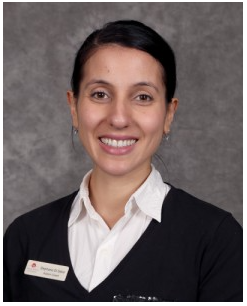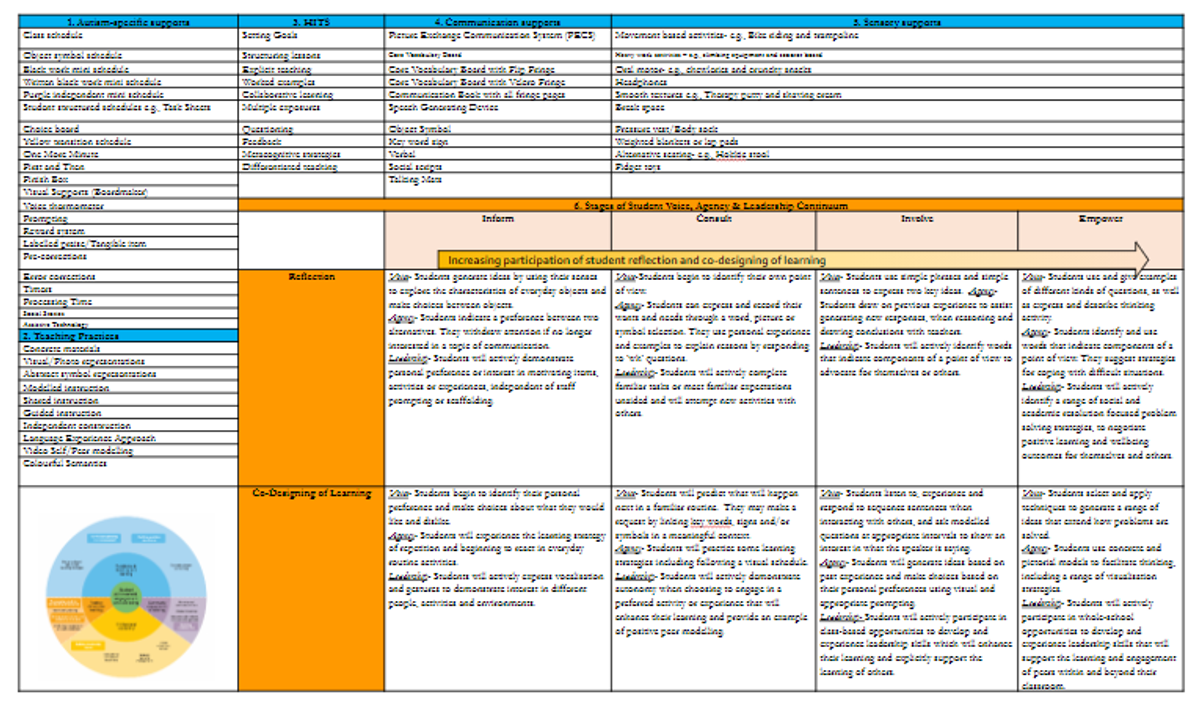Excellence in Teaching and Learning

Stephanie Di Salvo
Assistant Principal
Annual Implementation Plan (AIP) 2021 Priorities Goal
The 12 month target is an incremental step towards meeting the 4-year target, using the same data set.
12 month target: By the end of 2021, 90% of students receiving tutoring will meet their Personal & Social Capability PLSP goals.
At a whole school level, the Reading/Numeracy & Student Voice, Agency & Leadership School Improvements Teams will be implementing the following actions:
- Use school wide data to inform understanding of student needs and progress, and identify students requiring additional support
- Embed PLC structures to support tutor/teacher collaboration and reflection to strengthen teaching practice
- Plan how whole school professional learning on trauma-informed practice will be implemented and revisited throughout the year
- Establish a whole school approach to social-emotional learning or belonging and engagement
- Strengthen engagement in regional and network communities of practice
- Strengthen and embed the school-wide approach to communication with parents/carers/kin, incorporating the new ways in which schools connected during remote and flexible learning
Curriculum Day 9th March
Each year, government schools are provided with four student-free days for professional development. On Tuesday 9th March, teachers, education support staff, therapists and leadership will be undertaking a series of Professional Learning Sessions centred on our school's 2021 school theme: Embedding Student Voice, Agency & Leadership.
Professional Learning Sessions will include:
- Evidence-based Reading & Viewing teaching practices
- Universal Autism practices to achieve student learning outcomes
- Preventative strategies and interventions to support behaviours of concern
- Unpacking Professional Development Plan goals, strategies and predicted evidence
- Anaphylaxis online training
- CPR Online training
Our Reading & Viewing School Improvement Team (SIT) will be facilitating a Professional Learning session focused on the JSA Reading & Viewing Guide, which was developed by the English Curriculum Team last year. The guide is an adaptation and reflection of the DET literacy toolkit and current literature on effective reading instruction to support students with learning difficulties. The guide will support teachers and ES staff to build knowledge and to plan for and implement differentiated teaching practices in Reading & Viewing.
Professional Practice - Reasonable Adjustments
Reasonable adjustments refer to a “measure or action taken to assist a student with disability to participate in education and training on the same basis as other students”.
An adjustment is considered reasonable if it achieves the intended purpose of addressing the learning support needs of students and balancing needs and interests of all parties affected, including those of the student with disability, school staff and external agencies.
At Jacana School for Autism, Reasonable Adjustments encompasses universal Tier I teaching and learning practices. These specific practices best support the achievement of Personalised Learning Support Plan goals and success criteria.
Reasonable adjustments includes the following elements:
- Autism-specific supports
- Evidence informed teaching practices
- Hight Impact teaching Strategies (HITS)
- Communication supports
- Sensory supports
- Stages of Student Voice, Agency and Leadership Continuum
The Student Voice, Agency and Leadership (SVAL) School Improvement Team (SIT), introduced to school staff, how to apply a range of Reasonable Adjustments that are specific to a specialist school setting. As part of the Reasonable Adjustments repertoire, a stages of Student Voice, Agency and Leadership Continuum was developed to create authentic opportunities for students to engage in reflective practice and to actively participate in the co-design of learning with others.
The continuum is designed to assist significant stakeholders including teachers, ES, therapists, leadership and parents/carers, to understand the agency decision-making process required, to select the appropriate level of participation that best defines the student’s, teacher’s and parents/carer's role within the co-designing process; as well as empower students to have a democratic voice in the running of the communities in which they learn.



